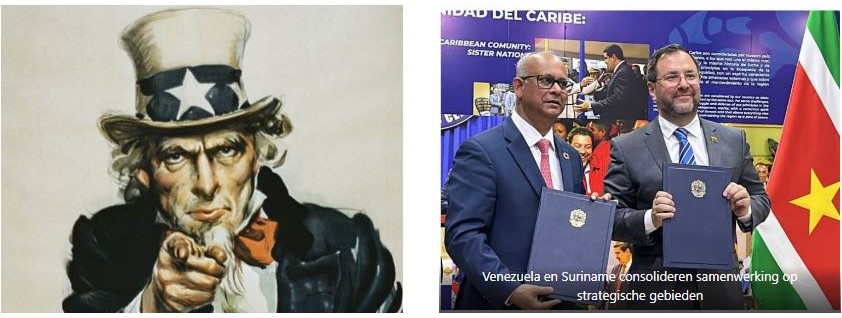In a game of geopolitical chess where many small states act as pawns, the influence of major powers is often underestimated, especially when that influence is exercised in the form of sanctions.
The United States, as the guardian of democratic values around the world, imposed sanctions on Venezuela with the aim of improving democratic processes within that country.
However, the repercussions of these sanctions extend beyond Venezuela's borders and affect small countries and islands in the region, including Suriname.
The consequences of such sanctions have a much broader and deeper impact than initially intended.
During the government of Hugo Chávez, and continuing under his successor Nicolás Maduro, Venezuela established Petrocaribe, an initiative that provides cheap oil and fertilizer to member states, including many small islands and countries in the Caribbean.
Suriname, which is going through an economic crisis, could particularly benefit from this agreement. These partnerships not only help reduce economic burdens, but also strengthen regional solidarity and cooperation.
However, US sanctions policy and the invisible diplomatic pressures it generates are significantly hindering these gains.
For example, Minister of Foreign Affairs, International Business and International Cooperation Albert Ramdin recently confirmed renewed cooperation with Venezuela, an action that offers hope but at the same time also underscores the complex relationship with the United States.
Suriname, like many other countries under pressure from the United States, is in a delicate position where it must weigh its economic interests against potential geopolitical consequences.
In addition, despite its influence and power, the United States does not provide support or alternative solutions to countries indirectly affected by the sanctions imposed on Venezuela.
This lack of support creates a precarious situation for these countries, leaving them between a rock and a hard place. It shows a lack of understanding and solidarity for the challenges faced by small countries.
Suriname's position, which yields to pressure from the United States, demonstrates not only the strength of the great powers, but also the weakness of smaller countries in the international political spectrum.
It shows how external influences can drive or even dominate the policies and economic prospects of small countries.
This situation underscores the need for a more multilateral world order, where the geopolitical games played by great powers do not overshadow the interests and voices of smaller states.

Zombie specialist. Friendly twitter guru. Internet buff. Organizer. Coffee trailblazer. Lifelong problem solver. Certified travel enthusiast. Alcohol geek.

